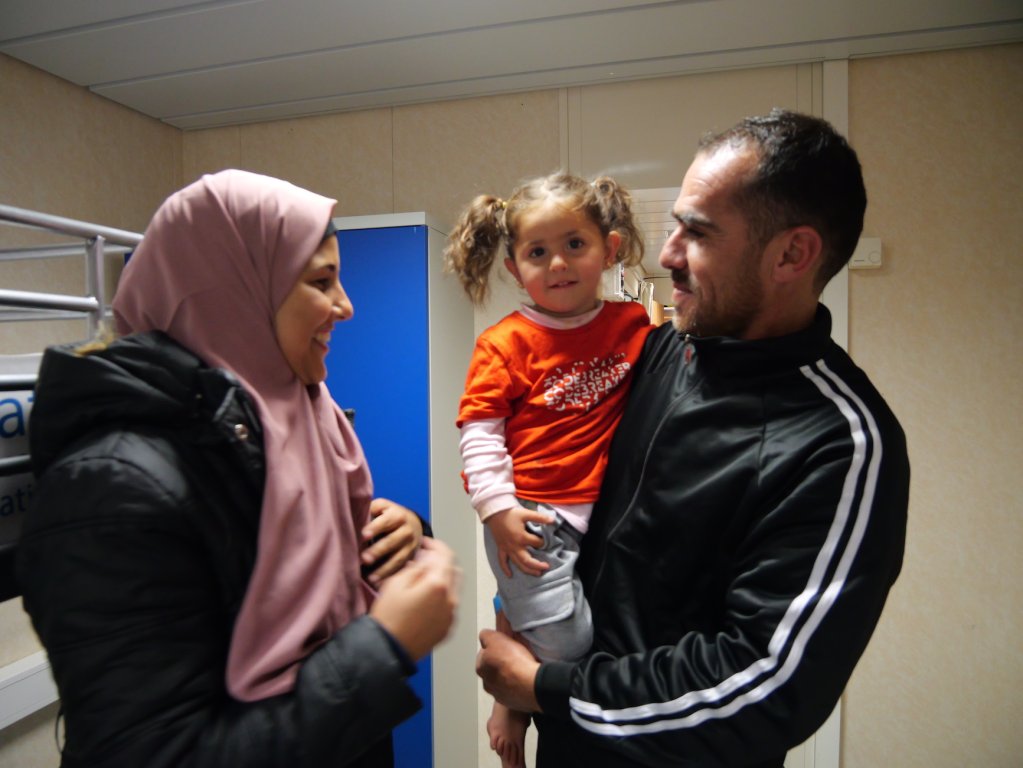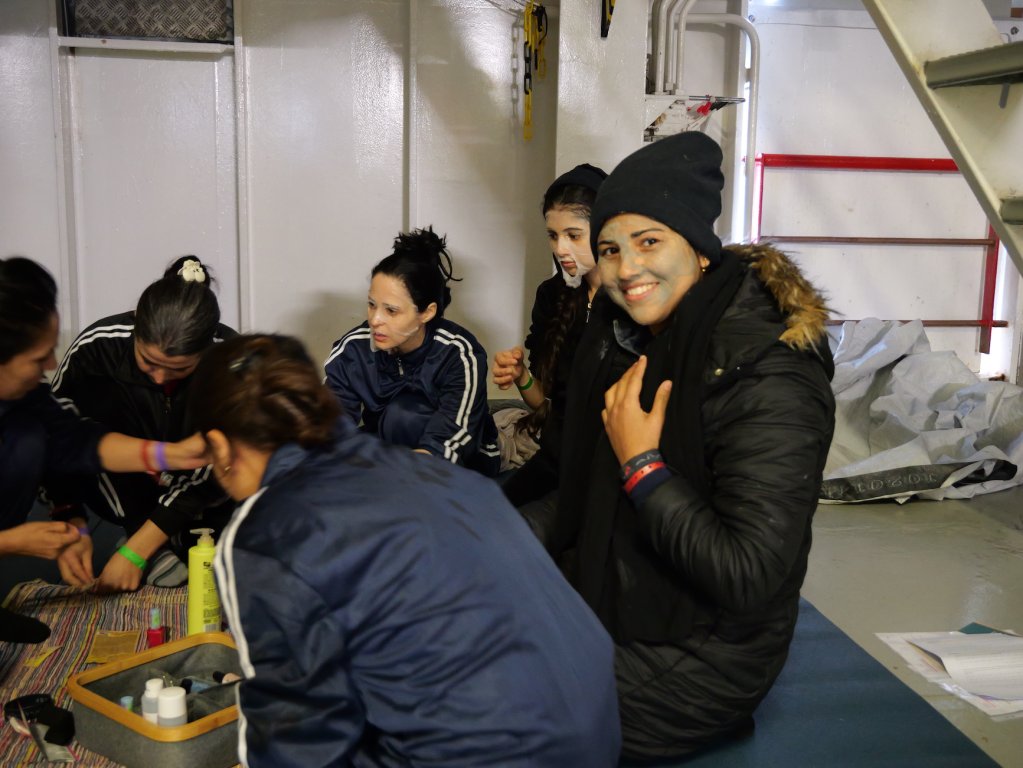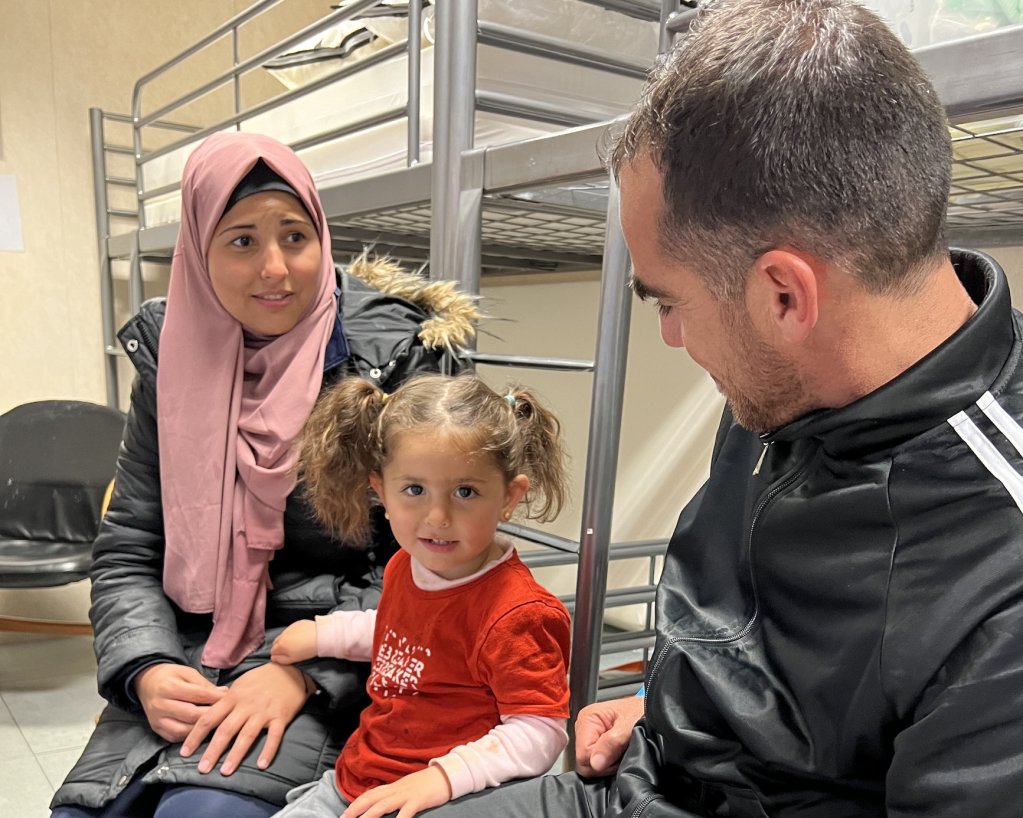Duaa Al Qatta, a young mother of three, shares her journey of survival, fleeing the bombings in Homs, Syria, and seeking refuge in neighboring Lebanon. She was then detained and abandoned in Libya before being rescued at sea.
InfoMigrants interviewed Duaa and her family aboard the Geo Barents rescue ship in the Central Mediterranean and later in Germany.
We are from Homs, Syria. The bombing started and war came to us. We stayed for a while in Lebanon, then boarded a boat from Lebanon and spent ten days at sea…tasting the bitterness of death and horror. My two children were sick, vomiting for ten days.
When we were one or two days away from reaching Italy, the Libyan boat affiliated with the Tareq Bin Ziyad group took us and detained us in Benghazi.

They used big hoses to pull water from the sea and spray it at us…but we kept sailing. The captain didn't stop the boat so they fired shots in the air and in the sea to scare us. After, they threw ropes into the boat and managed to stop the engine, forcing us to stop.
[In detention] we remained without food or drink…they kept us in prison for seven days, then released us somewhere in a garden. We had no passports or documents…This was dangerous because we could be imprisoned if checkpoints caught us.

Libya a 'tragedy of imprisonment and paying fines'
With difficulty, we managed to reach Tripoli, we stayed for about two or three months. After that, we tried again to cross the sea. We tried six times to cross the sea and each time they (the Libyans) caught us and detained us for about five or six days, sometimes seven or eight. Once, we were imprisoned in Abu Salim prison and stayed there for about ten days before they released us.
The children got sick and we suffered a lot and were exhausted. We endured a lot.
Read Also

We tried six times and on the seventh attempt, we succeeded in reaching it (Italy) after the Doctors without Borders ship rescued us. When we were on the boat the waves reached two meters in height. The boat was on the verge of capsizing. There were many people on the boat and the children started vomiting a lot and getting very sick. They couldn't bear much. We were very scared.
We hope that every Syrian in Libya can leave. I pray to God that this will happen. Staying in Libya is a major tragedy, a tragedy of imprisonment and paying fines.
*This series is based on an investigation conducted between February and May 2024 across Germany, Italy, and the Central Mediterranean. The investigation included a period on board the Médecins Sans Frontières (MSF) search and rescue ship, the Geo Barents, from January 30 to February 10. InfoMigrants was unable to independently verify the personal testimonies provided by migrant individuals. Arabic-English translator: Rama Jarmakani
